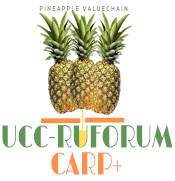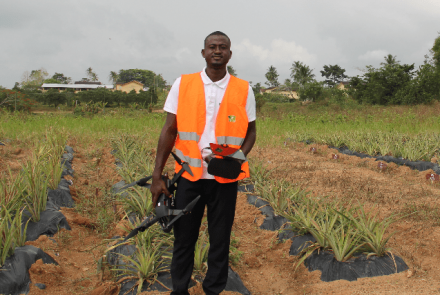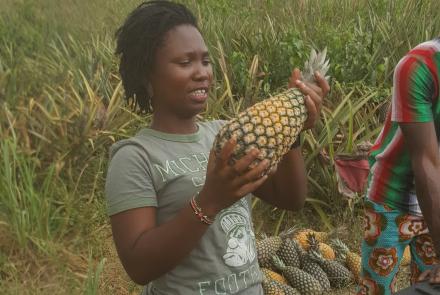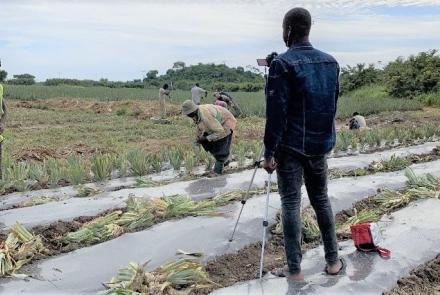The Pineapple Value Chain CARP+ Project
The pineapple value chain carp+ project facilitates the development of sustainable commercial production, processing, and marketing of pineapples in the Central Region of Ghana. Consequently, a sustainable commercial pineapple value chain system increases yield, income, and improve the livelihoods of smallholder value chain actors. Similarly, the system supports the activities of the larger-scale actors in the chain.
The project is based on the premise that interactions of key actors in the pineapple value chain encourage addressing of problems of smallholder farmers in the respective areas of soil management, accessibility to inputs, disease management, and marketing.
Actors in the pineapple value chain carp+ project include students, lecturers, entrepreneurs, and smallholder pineapple farmers who identify and address problems of the inadequacy of inputs, production challenges, post-harvest challenges, and marketing challenges.
The project in the same way assists in practical problem-solving and expands the frontiers of scientific knowledge, as well as enhancing the competencies of the respective actors. Students, scientists, lecturers, entrepreneurs, and smallholder pineapple farmers used methods such as a baseline survey, value chain mapping, and analysis to identify the problems.
Project Objectives
The project’s overall objective is to develop a sustainable commercial value chain for increased yield and income, and improved livelihood of smallholder farmers in the Central Region of Ghana.
The project evolves action research involving students, scientists, lecturers, entrepreneurs, and smallholder pineapple farmers to develop a sustainable commercial pineapple value chain in the Central Region of Ghana. Specific objectives guiding the project include;
- Identify the socioeconomic, production, and marketing challenges of smallholder pineapple producers.
- Assess the profitability of commodities and activities along the pineapple value chain.
- Apply tissue culture for mass production of improved and disease-free planting materials for supply to smallholder farmers.
- Conduct on-farm trials, experimentation, and set demonstrations with farmers to address prevalent disease and soil fertility problems in pineapple production in the study area.
- Establish an out-grower scheme for the adoption of improved, disease-free planting materials and good agricultural practices to produce healthy fruits for processing.
- Establish a mini packhouse and processing plant at the University of Cape Coast for processing, packaging, and marketing of pineapple juice and other products to the hospitality industries.
- Design curriculum and modules on profitable pineapple production along the value chain based on project experience, and deliver programmes to technical and vocational training (TVETs) interns.
- Log in to post comments



